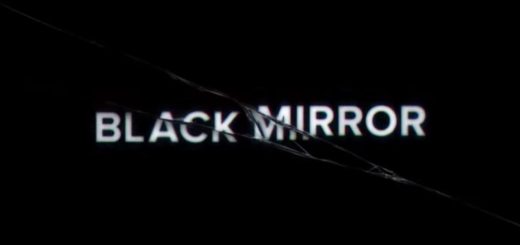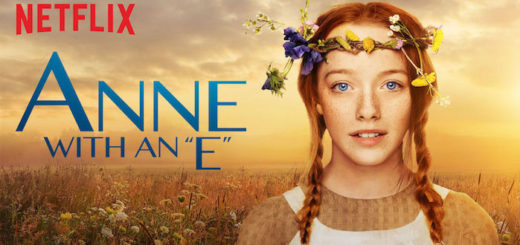DEAR WHITE PEOPLE Season One Review
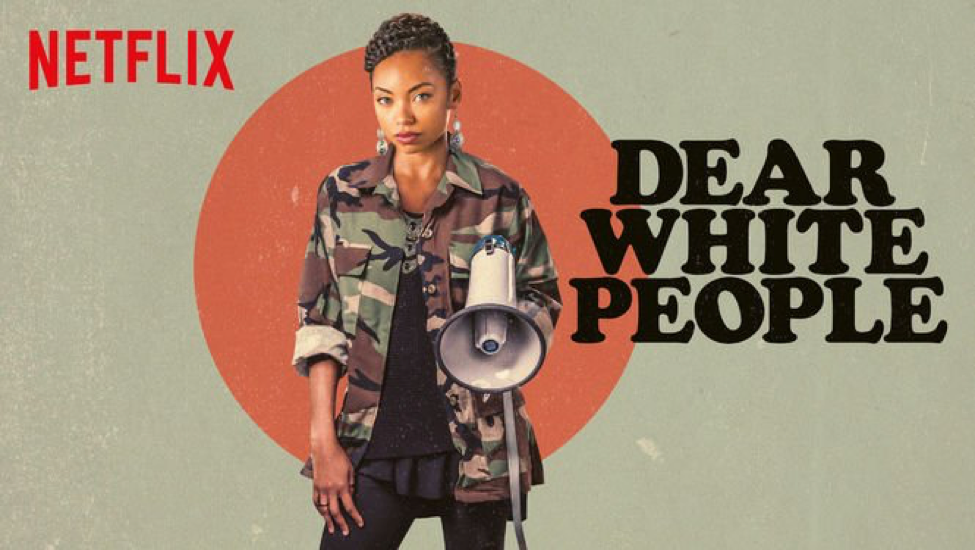
I physically jumped out of my seat when the DEAR WHITE PEOPLE series was announced. A whole 10 episodes of content about black intellectuals? Sign me up! While the amount of black representation on film and television has increased in my short lifetime, it’s safe to say that much of it is riddled with tragedy, stereotypes, and/or good old fashioned tokenism. But in this golden age of television, we get to see many talented creators go beyond all those tropes and tell more honest stories. To know that there exists a show about young black college students with actual complex characters is quite simply a breath of fresh air.
Netflix’s DEAR WHITE PEOPLE is a spinoff of Justin Simien’s 2014 satirical film of the same name. This time around, Simien serves as executive producer and writes and directs three of the 10 episodes. The series brings back the core characters of the film, and introduces quite a few new ones as well. It essentially picks up where the film left off, in the aftermath of a hideously insensitive blackface party on campus. This time, however, there is more time to explore the lives of every character and their relationships with each other.
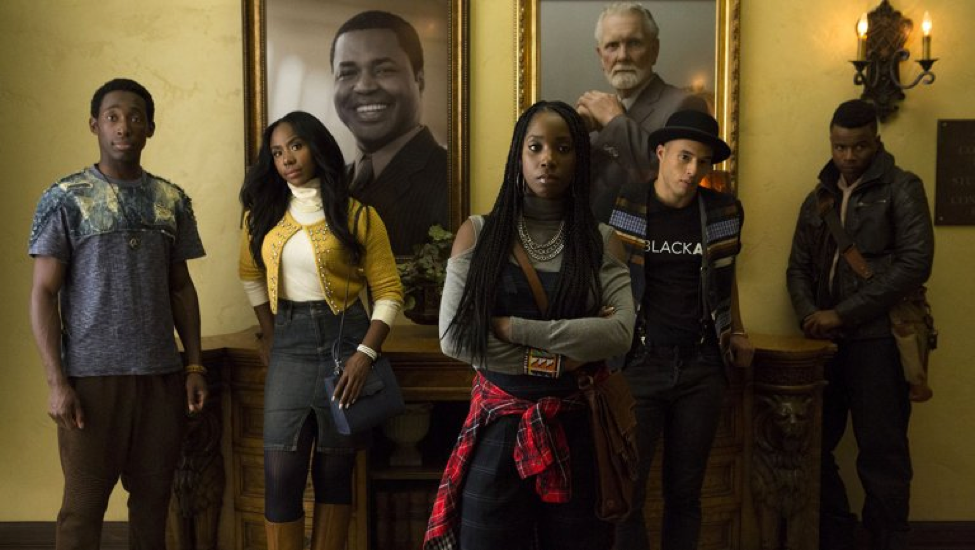
My face when you say I look exactly like [insert name of black celebrity here]
Each episode revolves around one of the six core characters. Samantha White (Logan Browning) is a biracial activist and the host of the controversial campus radio show that gives the series its name. Best described as “woke as fuck,” Samantha gets caught in a love triangle between her white sort-of-boyfriend Gabe Mitchell (John Patrick Amedori) and her passionate Black Student Union collaborator Reggie Green (Marque Richardson), who lusts after her. And then we have Troy Fairbanks (Brandon Bell), student body president by day, womanizing weed smoker by night. He often plays with the emotions of Colandrea “Coco” Connors (Antoinette Robertson), Samantha’s former best friend, who rejects her blackness in order to feel powerful. Last but not least, we have shy student journalist Lionel Higgins (DeRon Horton), who struggles with his identity and his secret crush on Troy.
I would be lying if I said I didn’t frequently snap my fingers in agreement at this show, poetry reading style. As a black woman who has spent most of her life in predominantly white areas, I can say that this show captures the many facets of being black in the 21st century. Hell, Simien and I attended the same college, so do with that what you will. But not everyone was as on board as I was. There was a whole lot of controversy surrounding the series in the lead up to its premiere. Many people chose to boycott Netflix, deeming the series “anti-white.” It’s very likely that these people only read the title before flipping their wigs. The show doesn’t just rant for hours about how much white people suck. What it does do is exhibit very real points of view from young black individuals of different backgrounds and how all of them handle racism in their own way. We even get to see the point of view of Gabe and the complications he faces as a white liberal who feels the need to tiptoe around his non-white friends. When given a chance, it is quick to see that this show isn’t attempting to “take sides,” but rather show a highly stylized version of what political discourse has become today.
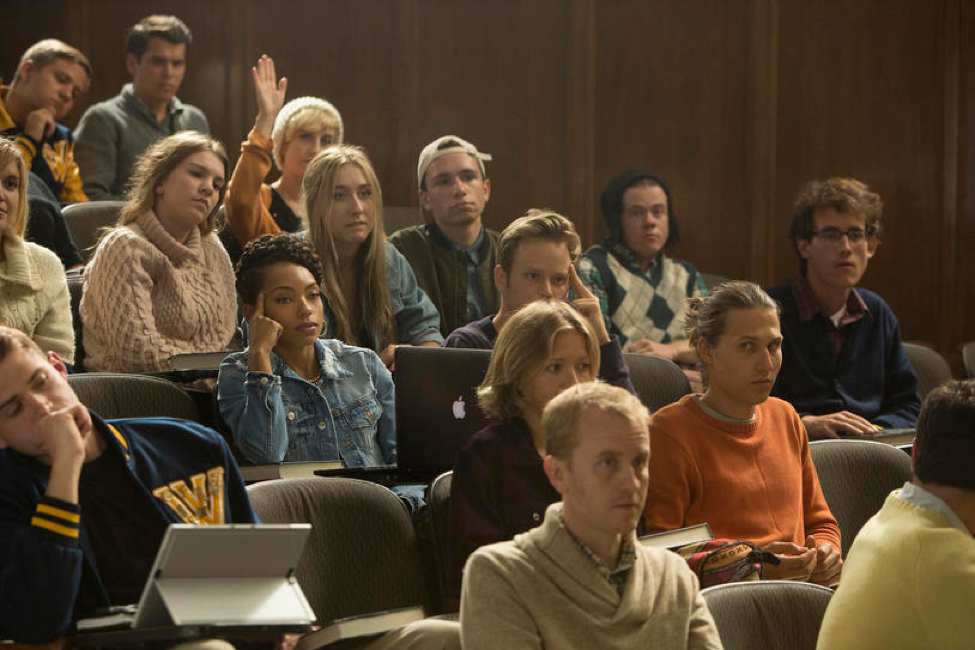
If one more professor asks me to talk about slavery I swear . . .
The format of the show is immediately memorable. Each episode is centered on one of the central characters, with the exception of the finale. We begin every episode with slick and smooth voiceover narration by the all too familiar voice of Giancarlo Esposito (Gus Fring on BREAKING BAD). Bit by bit, the series humanizes characters that come off as cold and stubborn by giving us more of their perspective on the world as we go along. Their stories effectively make clear that although black people share certain experiences, each is a different individual with their own ideas on how to either work the system or tear it down.
The ability to delve into uncomfortable territory is the show’s greatest strength, particularly in the way it tackles the tricky means of survival as a black person in America. Should you keep your mouth shut when someone makes a racist comment or should you speak out? Should you play up or tone down your blackness depending on who you’re speaking to? Keep the peace or disturb the peace? In a memorable scene we see Coco, sitting alone at a frat party after her white friends have all caught the attention of the white men at the party. She wants so badly to fit in with her white peers. Meanwhile, Samantha hides her affinity for country music and Ingmar Bergman movies. Her best friend Joelle (Ashley Blaine Featherson) goes as far as to say that she would never let a white man colonize her body. They want so badly not to let down their black peers in the Black Student Union.
It’s rare to see such a candid look at these struggles with identity that black individuals often feel in these types of environments. One stand-out storyline occurs in episode two, when Lionel attempts to “pick a label.” Being a black gay nerd makes it pretty damn difficult to pick a subgroup to hang out with.
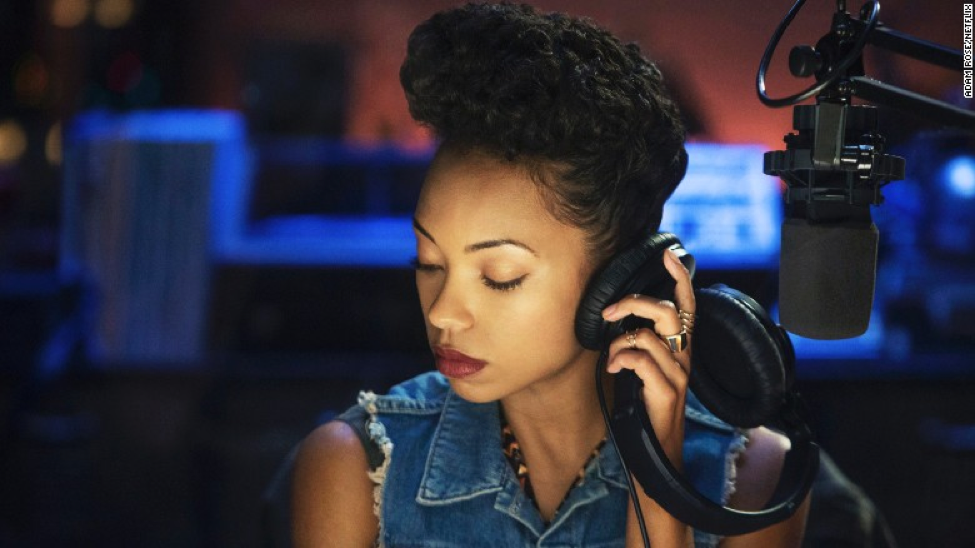
*Listens to Carrie Underwood*
The strongest episode by far is episode five, directed by the award winning Barry Jenkins of MOONLIGHT. After an argument ensues regarding who should be allowed to say the n-word, Reggie gets into an altercation with a white student at a party. When the campus police arrive, an officer pulls a gun on Reggie, threatening to shoot. This heart-wrenching scene is a reminder that stereotypes don’t just result in offensive jokes, but they also dehumanize black people to the point that they must fear for their lives. This is an incredible moment for Reggie, who up until then is the image of black male masculinity, finally revealing his vulnerable side.
While the show takes a very smart look at contemporary racial issues, it is not always 100% on the money. The oft-exaggerated dialogue is super fast-paced and loaded with pop culture references, which may alienate some audiences. There is also very little screen time for characters of who aren’t black or white—minor Asian and Latino characters are largely glossed over. But my one major qualm about the series is the character of Rashid (Jeremy Tardy). Rashid is the only African character. As someone of African descent, I, for one, am tired of seeing American actors do horrible African accents, playing their roles as ridiculous, soft-spoken Kenyan caricatures. Luckily, these minor missteps are definitely not enough to ruin this well constructed show.
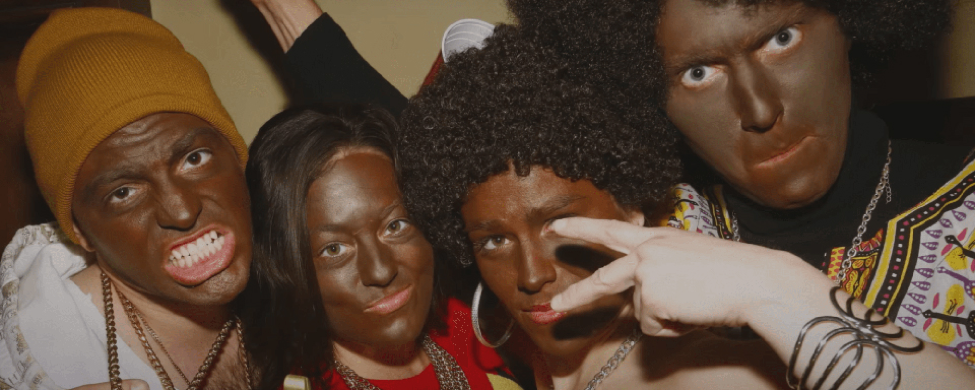
Racism? In the 21st century? Surely you jest!
DEAR WHITE PEOPLE asks the tough questions, and it’s the kind of show America needs right now. In the end I found myself wondering—is this show for black people? Is this show for white people? Ultimately it doesn’t try to show what the world should be like, but shows the world as it is. It reminds us that talking about race is ugly, and messy, and makes people of all colors uncomfortable. It’s a never ending question that doesn’t have an answer yet. Do you work the system or do you tear it down? Are you overreacting or “underreacting”? Getting hit in the face with these questions over and over again is both infuriating and exciting. And that is good TV.
Verdict: Recommend

